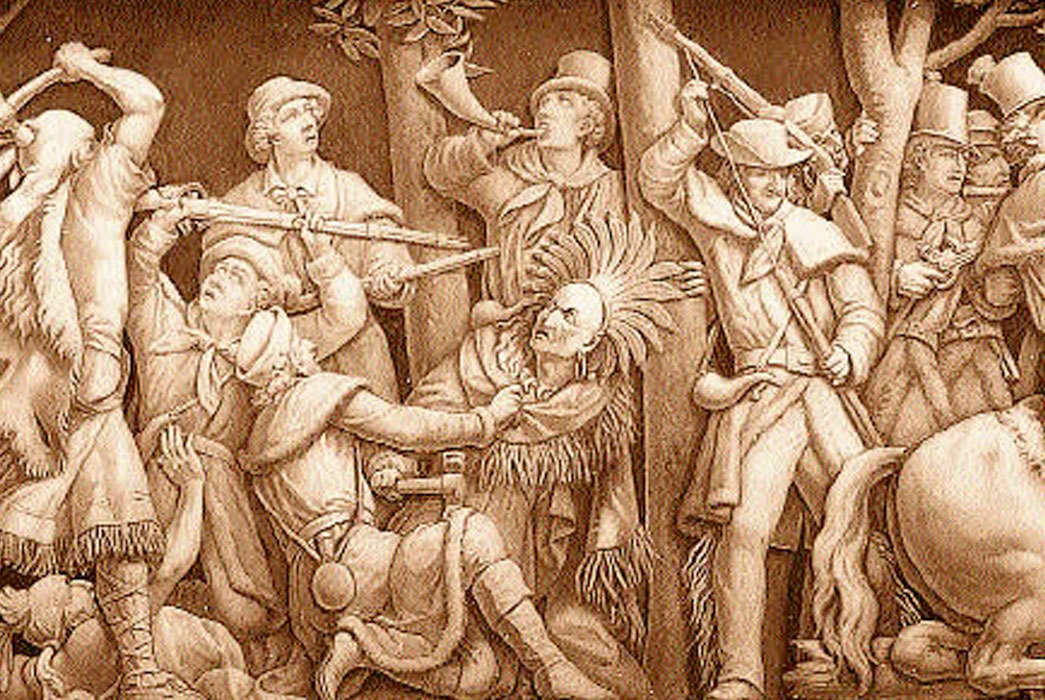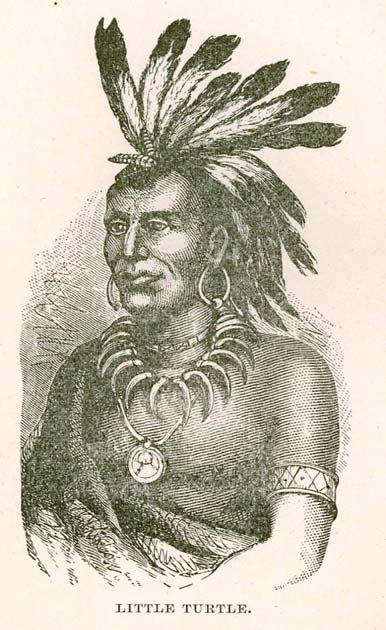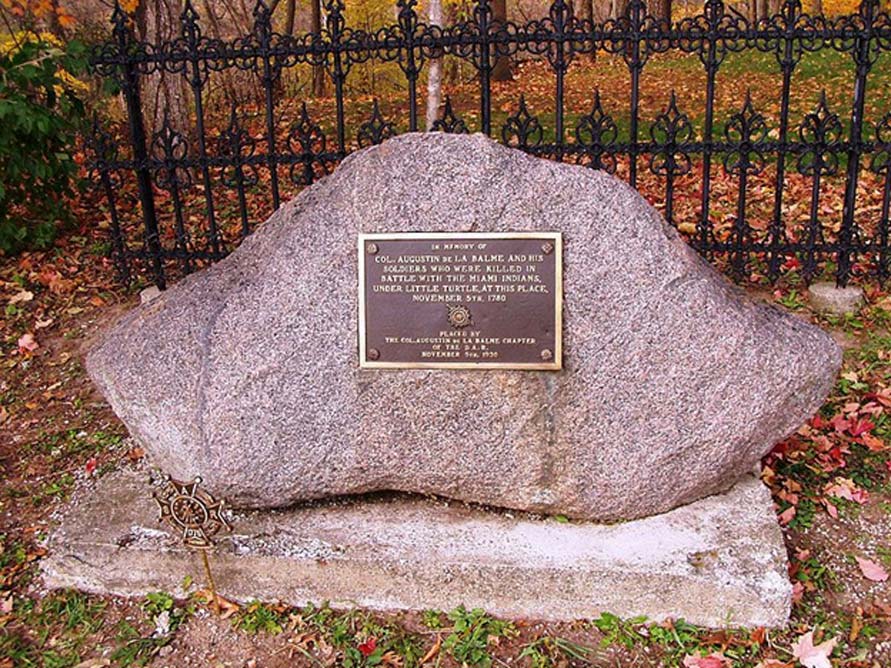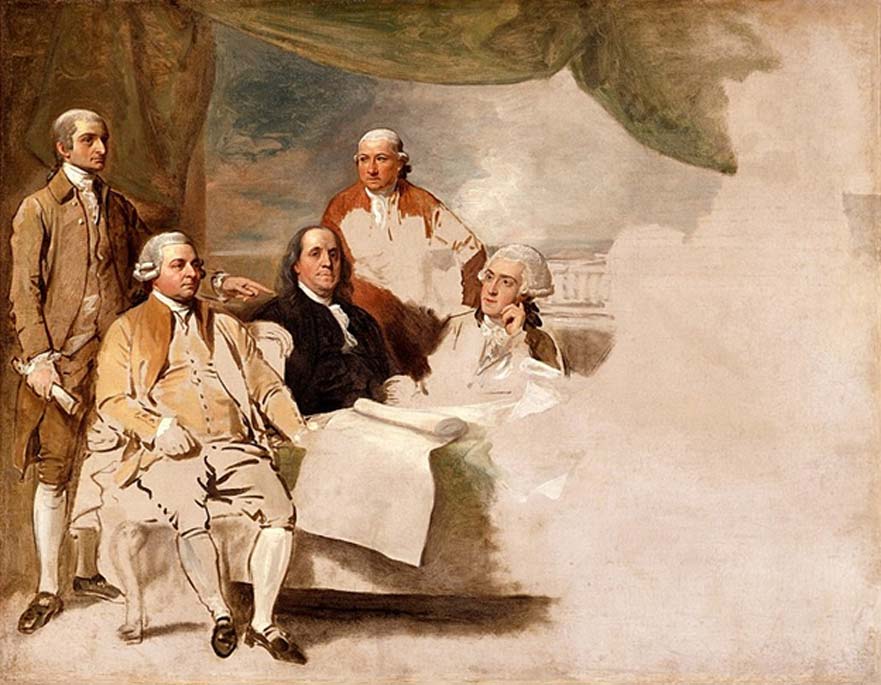
The Fate of Fierce Chief Michikinikwa, ‘Little Turtle’ Resistance Fighter
Chief Michikinikwa, who is more popularly known as ‘Chief Little Turtle’ originated from the Miami tribe and was born in 1752, near the Eel River in what is today Union Township in Whitley County Indiana. His father’s name was Turtle and when this son was born, the prefix ‘Little’ was added to Turtle, to differentiate between the elder and the younger. Little Turtle’s mother was a maiden from the Mahican tribe. Due to Little Turtle’s parents belonging to two different tribes, custom dictated that he could never attain the chieftainship of the Atchatchakangouen division of the Miami tribe. However, as he grew up, he displayed such warfare skills and leadership qualities that the tribal elders ignored tradition and appointed him Chief of the Atchatchakangouens.

Chief Little Turtle (Public Domain)
La Balme’s Defeat
Little Turtle earned his title as war chief by defeating Augustin de La Balme, a military French adventurer who launched an attack on the Miami village and Fort of Kekionga, (present-day Fort Wayne, Indiana). In October 1780, La Balme led a company of 63 men along the Wabash River, but the British and the Miami tribe were prewarned by a British agent that La Balme was on his way, so they decided to vacate the fort. La Balme plundered the fort, taking ammunition, blankets, guns and horses and stationed 20 men to guard the fort when he left. The reasoning behind La Balme’s attack on Fort Kekionga was due to his campaign objective to attack the British and to disrupt trade and communications, but his primary objective was to attack Detroit.
La Balme waited three days at the fort for additional forces to arrive, but they never came, so he left the 20 men to guard the fort and proceeded on his route. La Balme then decided to retrace his steps along the Wabash River, since there was a trading post down the Eel River (present-day Columbia City, Indiana). At the trading post, he made camp, for he understood that an attack on Detroit would have been pointless with only 43 men in his company. As La Balme waited for reinforcements, Little Turtle attacked Fort Kekionga, disposing of all 20 militia inside, he retook the fort. Little Turtle and his men then set off after La Balme and his diminished forces.
At dawn on November 5, 1780, Little Turtle found La Balme and his men camped along the Eel River and surrounded the camp. La Balme tried to negotiate with Little Turtle, offering to trade his freedom in exchange for all the supplies he had taken from Fort Kekionga. Little Turtle turned down the offer and the battle ensued, lasting several days. The battle ended with Little Turtle and his men killing La Balme and all his men, which ended La Balme’s endeavor to attack the British in Detroit. This small victory had a big gain, for it changed Little Turtle’s fate, fame and fortune as it bestowed upon him the reputation as ‘war leader’ in the battle known as ‘La Balme’s defeat’.

Marker commemorating La Balme's Defeat, on Dela Balme Road in Whitley County, Indiana (Public Domain)
End of the American Revolutionary War
In 1783, the Treaty of Paris was signed between the British and the Americans which formally ended the American Revolutionary War. The British agreed to hand over all the lands of the Old North-west Territory. This affected Little Turtle for sections of his land lay in the Old North-west Territory. Little Turtle was in luck, for although the British handed over the land to the United States of America, many British outposts refused to surrender. Since the newly proclaimed nation lacked the resources to claim the land, Little Turtle could enjoy a respite for the time being as an ally of the British.





